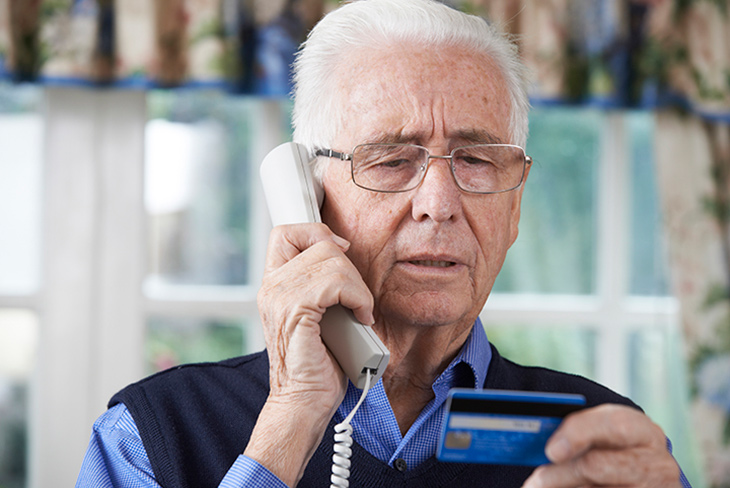You receive an excited call from your parents telling you they just won a sweepstakes. All they have to do is send a thousand dollars to receive their prize. How do you tell them it’s probably one of many scams targeting older adults?
Sadly, residents of senior living communities are not immune to people with bad intentions. According to a recent report from the Federal Bureau of Investigation (FBI), the number of elderly victims of scams living at home and in senior living communities has risen at an alarming rate. In 2021, more than 92,000 people over the age of 60 reported losses of $1.7 billion, representing a 74 percent increase in losses from the prior year.
There are steps senior independent living residents can take to avoid scams targeting older adults.
Screen phone calls and emails
If you don’t recognize the phone number calling you, don’t pick up. These days most cell phones and senior living communities offer caller ID that identifies the person and phone number calling. If you don’t recognize the number, simply don’t answer the phone. If you have voice mail or an answering machine, callers with a legitimate reason to contact you will leave a message. The same goes for email accounts held by older adults in senior living communities. Ignore unsolicited emails and be suspicious of odd email addresses.
Don’t be fooled by look-alike phone numbers
Do not rely on caller ID alone to authenticate a caller in senior living communities. Sadly, it is easy for scammers to spoof phone numbers, making it appear as though a call is coming from legitimate company or a local number using the same area code and prefix as your phone number. In reality, they may not even be calling from the United States. Again, if you aren’t sure, don’t answer the phone or reply to suspicious emails.
Never give out personal information over the phone or via email
If you receive unsolicited telephone calls or emails from individuals claiming to represent a company or government agency seeking personal information, hang up. Call the phone number on your account statement, from the phone book or website to verify it is an authentic request. If you need assistance finding a telephone number or email address, senior living communities’ co-workers should be able to help.
Remove your name from call lists
The Federal Trade Commission maintains a national Do Not Call registry to prevent telemarketer calls to reduce the possibility of fraud for residents of senior living communities. Access the registry online or by calling 888-382-1222. If you still receive telemarketing calls, report the caller to the FTC. Keep in mind that callers who continue to call are more likely to have bad intentions. Note: This list will not remove phone numbers from lists of charitable organizations, surveys or debt collectors.
Don’t fall for “Can you hear me?” scams targeting older adults
A common scam targeting older adults is when a caller (or robocaller) asks “Can you hear me?” or “Are you there?” The goal is to get you to respond, “Yes,” to use it as a voice signature to authorize unwanted transactions. Do not respond. Hang up. Also, don’t press a number to speak to a live operator or be removed from a list. These actions may result in even more robocalls.
Verify identity of individuals calling you on behalf of family members
Other common scams targeting older adults in senior living communities focus on family members. Callers claim to be acting on behalf of a loved one, often a grandchild, in trouble with the law or being held hostage. They need money to help with an emergency such as getting out of jail, paying a bill or fixing a broken-down vehicle. According to the FTC, scammers often urge the grandparent to keep the call a secret to avoid getting the grandchild in trouble with parents. Hang up and reach out to the family member to confirm their safety.
Residents of independent living services at Country Meadows are not immune to this scam. Click here to read the story of a resident of our senior living communities who fell victim to a scam claiming his grandson was in jail.
Don’t react to pressure
If a caller is persistent and pressuring you for information immediately, be suspicious. Advise the person to send you information via mail and hang up. You can take it a step further by telling a co-worker of senior living communities so they can report it.
Monitor accounts of loved ones with memory loss
Often one of the first signs a loved one in senior living communities may be developing memory loss becomes evident when managing finances. Early signs might include difficulty balancing bank statements, paying bills or piling up mail as they struggle to understand account statements. Sadly, this confusion also makes these individuals more likely to be more vulnerable to financial scams.
To ensure a senior doesn’t become a victim of scams targeting older adults, monitor bank accounts and have open discussions about where money is being spent. Emphasize that you are not attempting to take over finances but trying to help protect them from being victim of a scam. It is wise to be proactive to protect your loved one in senior living communities from making serious mistakes with their hard-earned money.
Senior living communities such as Country Meadows offer programs to help seniors avoid being victims of scams. Country Meadows offers independent living, assisted living and personal care, as well as restorative care and memory support services on its nine campuses in Pennsylvania and one in Frederick, Maryland. Please contact our team for more information about how we can support you or a loved one. Our co-workers are always available to help!



